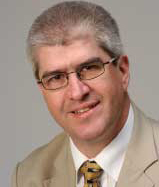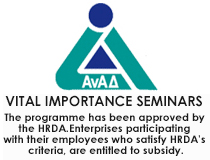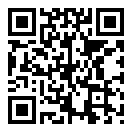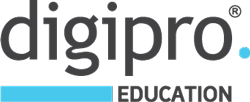Raising the Productivity of Firms in Tourism and Hospitality through Operating Model Excellence

Instructor
-
 Philippe LeliaertConsultant/Coach/Trainer
Philippe LeliaertConsultant/Coach/TrainerDr. Philippe Leliaert is an associate consultant of Ackinas bvba (management consulting group specialising in Process Performance, eLearning and Intellectual Capital Management); senior Organisational Effectiveness Consultant at The Sinclair Group (US-based consulting group specialising in Operational Excellence), senior consultant and member of the Advisory Board at ContentAdvisors (consulting group focused on Knowledge Management), Owner-manager of management consulting firm L-Consult bvba, and co-founder of the international consulting network Syntaxis Networking.
His consulting expertise focuses on organisational development & change as the industrial economy evolves into a knowledge-based economy. He provides management advice at both strategic and operational/implementation levels on the organisational impact of e-Business/the knowledge economy. He further advises on the development, introduction and management of knowledge processes (creativity & innovation; Communities of Practice) as the only sources of sustainable competitive advantage, and on the identification, measurement and management of Intellectual Capital value.
He is active in several European Networks of Excellence related to knowledge & intellectual capital management, including PRISM, NESKEY and KnowledgeBoard. He was recently a keynote speaker at the 5th European Conference on Intellectual Capital.
His client list includes, among others:
– Strategy formulation, development, and implementation (using amongst other the Balanced Scorecard model) at Belgacom (telecom operator), Union Minière (non-ferro metals), Siemens Building Technologies (security services), Xylos (IT & Training), BASF (petrochemicals), Ackinas (management consulting),
– process performance measurement & change management at Hays Logistics Europe (logistics), Mercedes-Benz Europa (automotive), Janssens Pharmaceutica and Medochemie Cyprus (pharmaceuticals), Mercator Group (insurance), HP Consulting Europe and BaaN Belgium (IT), Xylos (IT & Training), Telindus (ICT); Telenet Vlaanderen (telecom operator); Kone Europe (elevators); Ericsson Nanjing (electronics); Laiki Bank and Hellenic Bank (financial services)
– Knowledge & Intellectual Capital Management at ODG Toronto (consulting & Value Added Reseller), KBC bank and ING Carlease (financial services), Sharelink Nicosia (financial services), Leptos Cyprus (real estate), Bank of Cyprus and Hellenic Bank (financial services)

Recent Participants

Date
- Apr 29 - 30 2020
- Expired!
Cost
- Fully Subsidized
Location
Given the cyclical nature of the tourism and hospitality industries, the emerging multi-channel structure and the intensity of customer servicing, the operating model of companies in these industries become the most critical part of the business. As a result, companies in tourism and hospitality industries such as hotels, restaurants, car rentals, theme parks, venue centres, tourist shops and excursion providers should manage the performance of their operating model very efficiently in order to raise productivity.
Nevertheless, the operating model of many companies in these industries is not optimal:
- Over-servicing clients – dedicating resources to deliver non-value adding services
- Not considering the cost to service customers
- Not recognising differences among strategic segments thus providing one-fit-all solutions
- Inefficient utilization of resources
In order to deal with the issues identified above and achieve operating model excellence companies in the tourism and hospitality industries should:
- Set performance standards and KPIs
- Focus staff on managing efficiently the customer contact points
- Provide information about the key operating areas
- Procure data to a single database from where to calculate indicators and produce reports
Given the complexity of these tasks and lack of experience to deal with such issues, training and guidance are needed. Managing the performance of the operating model is a very effective approach to improve productivity as it aligns the whole organization around key operational goals.
Owners and managers in tourism and hospitality industries such as hotels, restaurants, exhibition venues, amusement parks, travel agents, tourist retail shops, who manage the company or who are responsible for customer facing or support functions such as marketing, sales, service delivery, operations, accounts, IT and HR.
The general objectives of the two-day training would be to help participants 1) re-evaluate the firm’s operating model and set productivity goals 2) measure performance of the operating model 3) manage performance. The specific objectives (knowledge, skill and attitude-related) are identified as shown below:
Knowledge-related objectives
- Understand how to assess customer expectations and how to identify and fill gaps of expected service vs. delivered service
- Understand what is required to automate data capturing and data presentation to enhance productivity
- Recognize the characteristics of useful KPIs
- Know how to focus staff on company priorities
Skills-related objectives: (Be able to)
- Identify critical success factors for the operating model
- Identify and measure KPIs that can enhance productivity across key processes
- Create linkage across the organization
- Develop an organizational climate that raises staff productivity
- Implement efficiency improvement programs
Attitude-related objectives:
- Create the right attitudes about efficiency
- Appreciate the value of setting operating standards
- Appreciate the importance of organizational culture
Day 1: 07:45 – 09:00
| Trends in tourism and hospitality and the need for raising productivity Current trends that require immediate response
The operating model and challenges of managing performance for excellence
|
09:00-09:45
| PRACTICAL SESSION: Identifying your company’s operating model performance goals and current measurement
|
| 09:45 -10:00 | Coffee break |
10:00 – 11:00 | Setting operational priorities in tourism and hospitality
Case study: How a hotel identified critical success factors and developed a strategy map. The objective is to demonstrate the practical application of operational objectives |
11:00 – 12:30
| PRACTICAL SESSION: Company operational priorities and measurement
|
| 12:30 -13:30 | Lunch Break |
13:30 -14:45
| Identifying customer expectations in tourism and hospitality and implications for the operating model
Case study: Applying the customer journey to a restaurant The objective is to practically demonstrate how a restaurant applied this model to map customer expectations by considering the end-to-end process and actions, decisions, feelings of the customer at each stage of the journey |
| 14:45 – 15:00 | Coffee Break |
15:00 -16:15 | Benchmarking customer expectations with the firms’ actual delivery Mapping actual vs desired levels of delivery across key processes Identifying gaps and finding solutions
|
07:45 – 08:45
08:45-09:45
| Review of previous day. PRACTICAL SESSION: Assess service delivery gaps – areas of over servicing customers and areas of underservicing customers and create ideas of how to improve productivity. The objective of this exercise is to identify areas where firms in tourism and hospitality can optimize the delivery of service at customer touch-points across all channels. Developing standards and KPIs for departments in tourism and hospitality industries
Example: Identifying KPIs for front line departments and support departments in tourism and hospitality |
| 09:45-10:00 | Coffee break |
10:00-12:15
| PRACTICAL SESSION: Identifying departmental KPIs and levels of ownership
|
| 12:15 – 13:15 | Lunch Break |
13:15-14:45
| Aligning staff with operational objectives through the appraisal system
Creating the right culture
Practical Session: Identify KPIs to include in the appraisal in tourism and hospitality The objective of this exercise is to help managers understand how to create a more comprehensive performance management system |
| 14:45 -15:00 | Coffee Break |
15:00 -15:45
15:45 -16:15 | Managing performance at operations in tourism and hospitality industries
Managing data quality
Initiating an improvement project of the operating model
Closing Remarks |
The event is finished.

SUBSIDY, ATTENDANCE, AND CANCELLATION POLICY
HRDA Subsidy and Seminar Attendance
- A company’s participant is eligible for a subsidy when their Social Insurance and Industrial Training contributions have been settled in full by the time of registration/seminar. In case of ineligibility/disqualification, the company will be invoiced the full amount per participant.
- A company’s participant is eligible for a subsidy if he/she completes an obligatory attendance of 75% or more (both during seminar and company visit). In case of failure to complete the attendance, the company will be invoiced the full amount, per participant.
Cancellation and Substitution Policy
- Cancellations can be accepted up to 5 working days prior to the seminar without penalties. For any cancellations received after the deadline (or no-shows), the company will be invoiced the full amount per participant.
- Substitutions can be accepted any time prior to the seminar without penalties.
- Τhroughout the seminar participants must have their camera and microphone open, for better communication and as defined by the specifications of HRDA otherwise participants will not be approved by HRDA.

